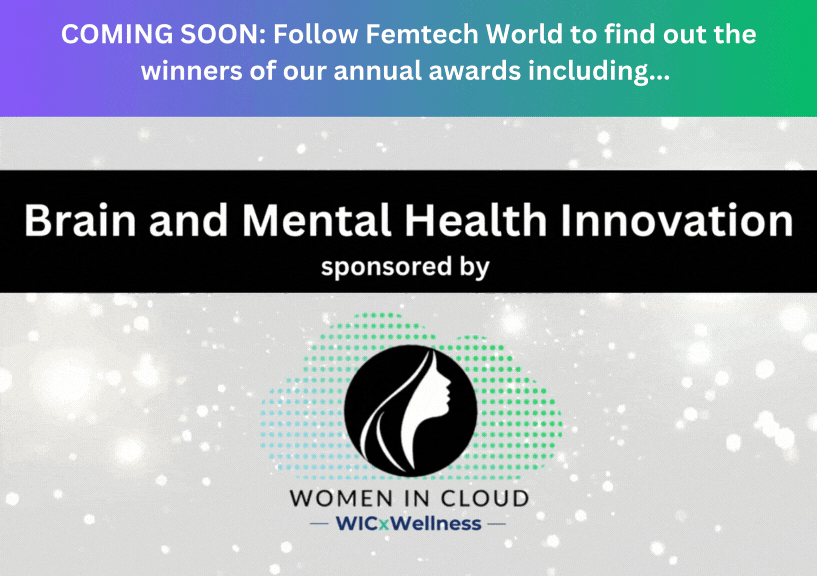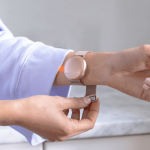Wellness
NHS rolls out new generation ‘artificial pancreas’ to help pregnant diabetic women

Thousands of pregnant women in England with type 1 diabetes will receive a pregnancy-specific artificial pancreas to help manage blood glucose and protect maternal and baby health.
The hybrid closed loop system combines an insulin pump, glucose sensor and mobile phone algorithm.
It calculates and delivers insulin around the clock, and uniquely allows women to set lower glucose targets required for safer pregnancy outcomes.
Kate Brintworth, chief midwifery officer for England, said: “This life-changing technology is great news for women with type 1 diabetes because their chronic condition can make it difficult for them to effectively regulate their blood glucose levels to have a safe pregnancy.
“Effective management of blood glucose levels before and during pregnancy for women living with type 1 diabetes has been shown to reduce the risk of poor maternity outcomes, such as miscarriage, stillbirth and birth injuries, and minimise risk to a baby’s development.
“The NHS is offering this cutting-edge ‘artificial pancreas’ because we want to transform the experiences of women with type 1 diabetes – helping to make this special time in their life safer, less stressful, and more enjoyable.”
Around 2,000 women with type 1 diabetes become pregnant each year in England.
Pregnancy hormones can make glucose control more difficult, raising risks of miscarriage, stillbirth, birth injuries and babies needing intensive care if unmanaged.
More than 600 pregnant women have already received the device through NHS diabetes specialist midwives and diabetologists in the first phase of rollout.
The system reduces the need for finger prick tests and insulin injections.
It also allows NHS teams to monitor women remotely, cutting hospital visits. By learning glucose patterns, it adjusts insulin automatically when levels rise or fall.
Poor glucose control can lead to larger babies – on average around 50 per cent bigger than typical for their gestational age – which increases later risks of obesity, type 2 diabetes and cardiovascular disease.
The rollout is part of NHS England’s Saving Babies’ Lives care bundle version 3, aimed at cutting stillbirths, preterm births and brain injuries.
Health chiefs have allocated £3.7m for local systems to support the rollout, within a wider £60m fund to expand access to other type 1 diabetes groups this year.
Partha Kar, type 1 diabetes technology lead at NHS England, said: “The rollout of this technology is another example of the NHS taking action to ensure that patients can benefit from the latest technological innovations to improve their medical care.
“The universal uptake of continuous glucose monitors by women living with type 1 diabetes was driven by NHS action on this issue in 2019 – a global first – and has led to improvements in outcomes for them.
“It has also paved the way for yet another ‘first’ for the NHS by enabling us to roll out this specialist hybrid closed loop system.
“This ingenious – yet simple – technology is helping pregnant women living with type 1 diabetes – and those planning a pregnancy – live better lives, improving maternal outcomes, reducing serious health complications, and making care simpler.”
News
Researcher calls for improved education and access to period products in schools

Students are still struggling to access free period products in schools despite a government scheme designed to tackle period poverty, new research shows.
A study involving 77 teenagers in schools and colleges across Yorkshire found that while pupils welcomed the scheme, many faced barriers such as products being locked away, stored far from classrooms, or unsuitable for their menstrual flow.
The research was led by Dr Maria Tomlinson, a lecturer in public communication and gender from the School of Information, Journalism and Communication, who submitted written evidence to the Women and Equalities Committee alongside period equality organisation Irise International.
Focus groups revealed several challenges, with some pupils saying they struggled to concentrate during exams or experienced leaks because they were not allowed to bring products into exam rooms. Others avoided reusable options because they did not know how to use them.
The government’s free period products scheme is intended to ensure no pupils miss education because they cannot afford menstrual supplies. However, the findings suggest implementation issues are limiting its effectiveness.
Dr Tomlinson’s findings are published in her book The Menstrual Movement in the Media: Reducing Stigma and Tackling Social Inequalities.
She has worked with Irise International since 2020, and her research informed the UK Schools Toilet Policy Toolkit launched in 2024, which provides guidance on how to implement the period product scheme effectively.
Dr Tomlinson said: “Irise and I hope that our evidence will be discussed in parliament and will lead to improvements in menstrual education and access to period products in schools.
“Thanks to KE funding from the Faculty of Social Sciences, Irise, Belszki, and I will be training 10 schools to teach our menstrual education curriculum and implement the UK Schools Toilet Policy Toolkit.
“We have already seen the very positive impact of the curriculum on pupils’ knowledge, confidence, and wellbeing in one school and cannot wait to see its impact on 10 more schools.”
The evidence submitted to parliament included several proposed solutions.
One was a primary school menstrual health curriculum developed by feminist theatre performer Belszki, based on Dr Tomlinson’s findings. It allows pupils to learn about reusable products and test their absorbency using water.
Previous research by Dr Tomlinson titled Faith-Informed Menstrual Health Education was also cited.
It found that young women from ethnic minority and faith groups often feel most underserved by menstrual education.
Dr Tomlinson said: “Once we have gathered evidence of the impact of the curriculum and Toilet Toolkit in our ten schools, we will continue our dialogue with the government with the ultimate goal that all girls and young people with periods have access to the menstrual products, knowledge, and support that they need to achieve their potential.”
The Women and Equalities Committee called for evidence earlier this year on the period product scheme, menstrual education and related issues as part of a broader review of menstrual health provision.
Wellness
Thriving through the ups and downs: A guide to women’s mental health

By Naomi Magnus, psychotherapist and founder at North London Therapy
Women’s health is closely linked to our biology, hormones, and the way our brains are wired, all of which shape our life experiences.
From the teen years right through to adulthood, hormonal ups and downs can affect mood, thinking, and emotional resilience in ways that are uniquely female.
Oestrogen and progesterone, for instance, don’t just influence fertility – they also play a key role in regulating neurotransmitters like serotonin and dopamine, which affect mood and anxiety.
In your twenties, when careers, relationships, and life choices are all coming together, it’s perfectly normal to feel anxious or low at times.
Anxiety disorders can often be connected to women’s hormonal and neurological differences. Recognising this can be really reassuring – anxiety can simply be a reflection of a complex, finely tuned system.
A woman’s menstrual cycle can have a big impact on energy, focus, and mood throughout their life, yet many women aren’t taught to track or anticipate these changes.
Later on, life events like pregnancy, postpartum shifts, and perimenopause bring even bigger hormonal swings, which can trigger mood changes, brain fog, or longer-term mental health challenges.
Schools have a crucial role to play in helping young women understand their bodies and mental health.
While the current UK national curriculum covers basic reproductive biology and puberty, it often misses the full picture of hormonal cycles, mental health, and the connection between the two.
Comprehensive education should include tracking menstrual cycles, recognising mood and energy patterns, understanding stress and anxiety triggers, and helping young girls to develop healthy coping strategies.
Teaching these skills early on equips girls with self-awareness, confidence, and the tools to manage their physical and emotional wellbeing throughout life.
Menopause is another life stage that brings significant hormonal changes, which can affect mental health.
As oestrogen and progesterone decline, many women notice mood swings, anxiety, low energy, and brain fog.

Naomi Magnus
Lifestyle adjustments can help – regular exercise, a balanced diet rich in omega-3s and whole foods, good sleep hygiene, and mindfulness or meditation practices can all support mood and cognitive function.
Therapy, such as cognitive behavioural therapy (CBT) or counselling, is effective for managing anxiety or low mood.
For some, hormone replacement therapy (HRT) may be recommended by a GP or specialist to stabilise hormones and alleviate both physical and psychological symptoms.
Women – at any age – can help themselves to feel better when hormone changes strike.
I am an advocate for mindfulness, good sleep, gentle exercise, socialising, and tracking your cycle alongside your mood.
Technology is stepping up – there are some amazing apps that make it easier to understand how your mental health and hormones interact.
It’s also worth acknowledging that times are tough globally – economic uncertainty, climate anxiety, and social pressures can all take their toll on our mental health.
While we can’t control everything around us, getting to know our own bodies and how we respond to stress can make a real difference.
By tuning into our cycles, moods, and energy levels, we can better anticipate challenging days and create a sense of calm amidst the chaos.
Understanding that women’s brains and mental health respond differently across life stages is really important.
Women should approach mental health proactively – because thriving isn’t just about surviving, it’s about knowing your mind and body inside out.
News
Occupational therapy eases emotional strain of high-risk pregnancies, study finds

Occupational therapy can ease anxiety and emotional strain for women experiencing high-risk pregnancies, with cognitive-based techniques found to be most effective, new research has revealed.
Joint research from Edith Cowan University and the University of St Augustine for Health Sciences reviewed a range of psychosocial occupational therapy approaches and found that cognitive-based interventions had the strongest impact on managing perinatal anxiety, depression and stress.
The review examined several therapy types, including cognitive-based, counselling-based, sensory-based, emotion-based and integrated approaches.
Dr Thuy Tran is occupational therapy lecturer at Edith Cowan University’s School of Medical and Health Sciences.
The researcher said: “There is a lot of research evidence that reveals high-risk pregnancies result in increased levels of anxiety, stress, depression and a reduced quality of life.
“And while research has been done on how psychosocial occupational therapy could assist in those areas, there was no evidence which method was most effective.”
Around one in five women experience high-risk pregnancies requiring specialised monitoring and care.
Such pregnancies — which may involve conditions like pre-eclampsia, gestational diabetes or multiple births — often cause significant emotional distress, including fear, anxiety and uncertainty.
Occupational therapy helps people manage daily activities and life transitions through targeted interventions.
Psychosocial occupational therapy specifically addresses mental health and emotional wellbeing alongside functional support.
The researchers found that cognitive-based interventions were most effective for managing perinatal anxiety, depression and stress.
Counselling-based interventions had a moderate impact on anxiety, depression and quality of life, but a strong effect on reducing stress.
Sensory-based interventions appeared ineffective for anxiety, with limited evidence of impact on depression, stress or quality of life.
Lead author Dr Sabina Khan from the University of St Augustine for Health Sciences said the findings provide much-needed clarity about which approaches deliver the greatest benefit.
Khan said: “By identifying that cognitive-based and counselling-based interventions are the most effective in reducing anxiety, stress and depression, this research helps guide clinicians toward evidence-based practices that can meaningfully improve women’s wellbeing during a particularly vulnerable time.
“Women facing high-risk pregnancies frequently navigate fragmented systems.
“Embedding occupational therapy early helps close the gap between medical management and real-world function.”
Dr Tran said the research suggests practitioners should include cognitive-behavioural techniques in occupation-based sessions and place greater emphasis on emotional and cognitive assessment during the perinatal period.
The researcher said: “We need to have a holistic approach to working with clients to ensure that our strategies help them to function optimally.
“Whether this is in their new role as a mother, or their role as a mother to multiple children, or as a partner, or in their social role.”
The role of occupational therapists in women’s health is steadily growing in Australia.
Most practitioners work in private practice and are recognised as mental health care providers, making services accessible through mental health care plans, enhanced primary care plans or self-referral.
While some hospitals already employ occupational therapists in this field, there are calls for this to become standard care nationwide.
Dr Tran urged pregnant women, particularly those experiencing high-risk pregnancies, to seek intervention early.
Dr Tran said: “Pregnancy is such an intense phase, with women experiencing significant emotional, psychological and physical changes in their bodies, all while their social and work roles are also transitioning.
“A lot of focus is placed on the baby, but we don’t really talk about the emotional wellbeing of the mother and the transition from one role to the next.
“Having an occupational therapist can provide you with strategies to help that transition.”
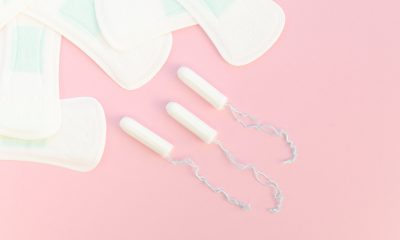
 News1 week ago
News1 week agoDozens of women report suffering painful burns after using Always sanitary towels
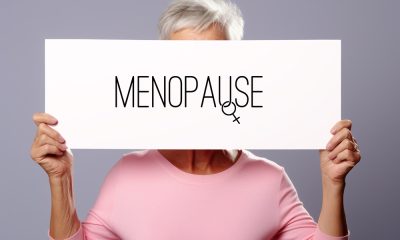
 Ageing4 weeks ago
Ageing4 weeks agoFDA plans to revise black box warning on menopause hormone therapies
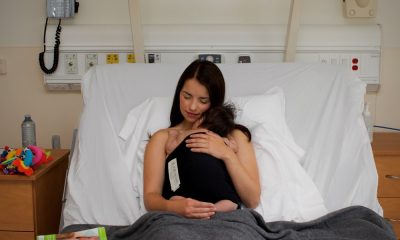
 News2 weeks ago
News2 weeks agoWomen’s health innovations recognised in TIME’s Best Inventions 2025

 News3 weeks ago
News3 weeks agoAI-powered women’s health companion Nexus launches in UK
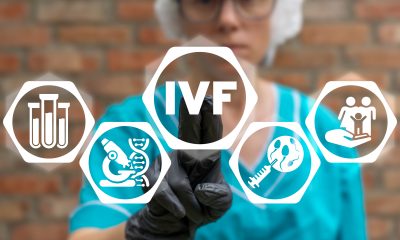
 Hormonal health4 weeks ago
Hormonal health4 weeks agoScientists turn human skin cells into eggs in IVF breakthrough

 Wellness2 weeks ago
Wellness2 weeks agoCutting through the noise in femtech – key takeaways from Women’s Health Week 2025
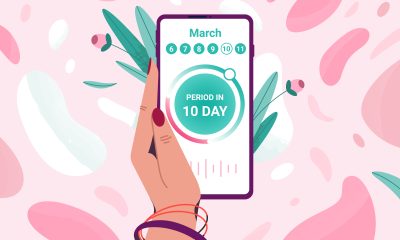
 Diagnosis3 weeks ago
Diagnosis3 weeks agoMenstrual cycle affects women’s reaction time, study finds

 News4 weeks ago
News4 weeks agoDaily pill could delay menopause ‘by years,’ study finds


















